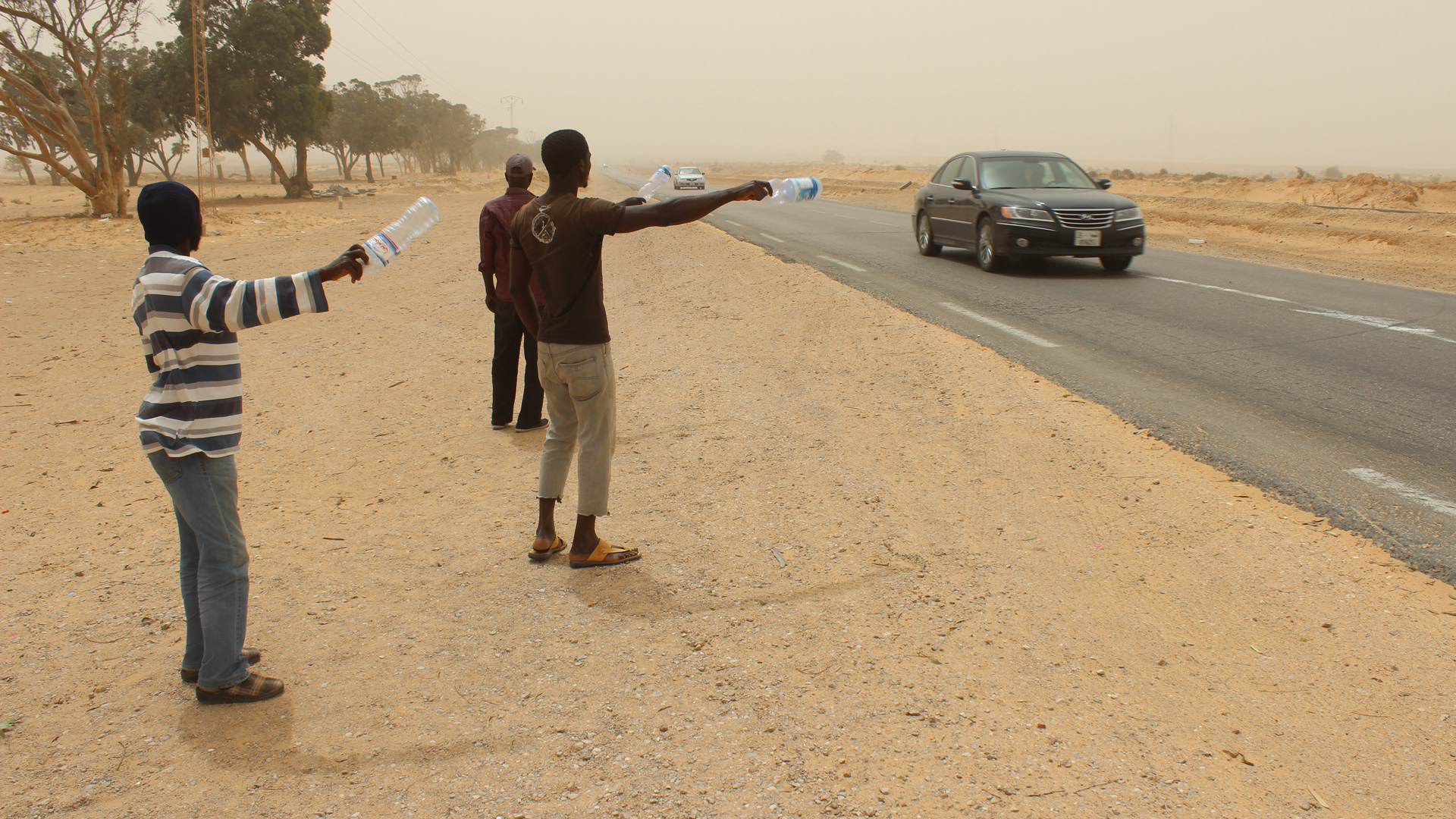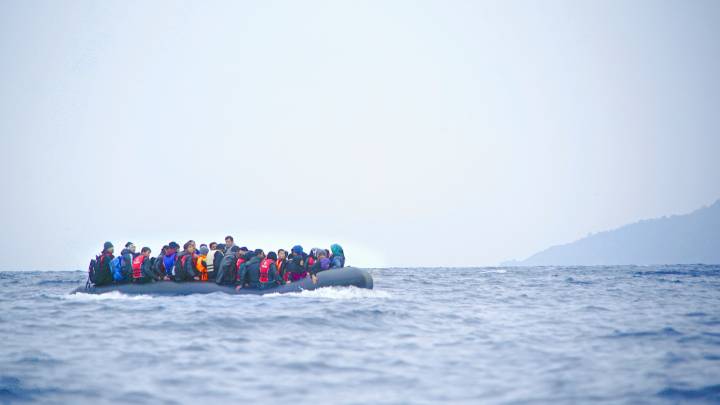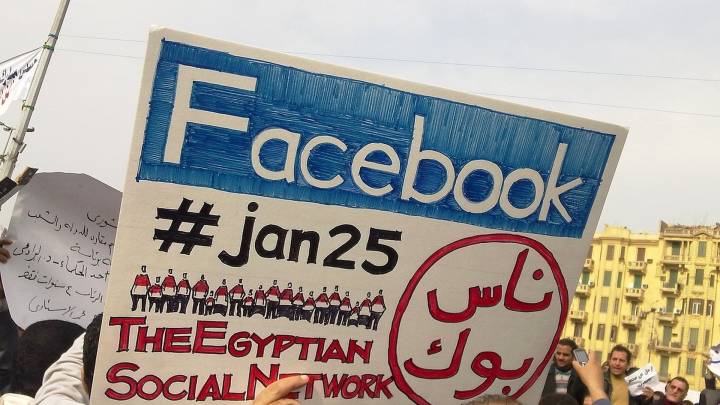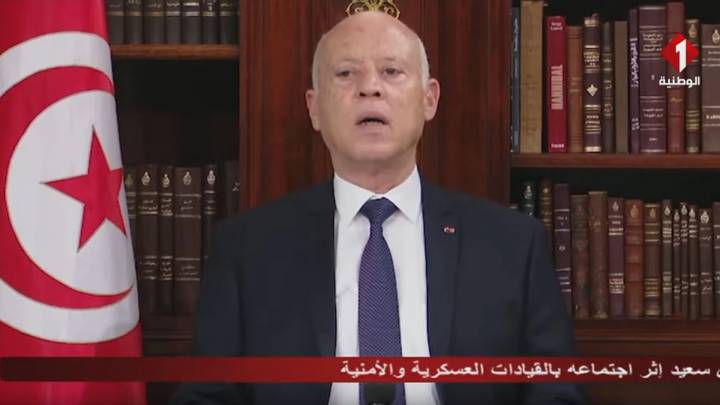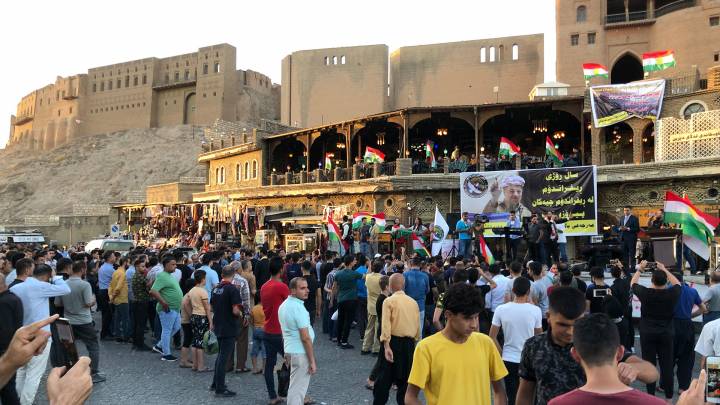Once a crowded transit camp, today the shuttered Choucha refugee facility is home to a small hardcore group of emigrés, hoping vainly for legal passage to a new life.
As soon as he gets up, Margai Hawkins can hear if it is going to be a good day or not. If, while lying in his tent at seven in the morning, the 29-year-old can hear the droning engines of a Tunisian army patrol, he prepares himself for a long day on the country road, just a stone’s throw away. If the patrol doesn’t arrive, the road over the border remains closed due to blockades of burning tyres on the Tunisian side or gun-fighting on the Libyan side.
Hawkins lives in the no man’s land between the two counties, subsisting mainly on donations from people driving by.
When the military vehicles have disappeared into the distance, Libyan families set off for the border crossing at Ras Jadir, ten kilometres away. The 58 forgotten migrants staying in the Choucha transit camp are known to many of those who pass by. They make a brief stop to unload bottles of water and tins of food.
I don’t want to be illegal anywhere. I’m only going to go after a proper asylum claim, it doesn’t matter where.The Choucha camp is actually in Tunisia, but the barren area where the Sahara seems to run right into the Mediterranean is completely uninhabitable, say the men wrapped in shawls against the relentless wind.
In February 2011, when protests against Muammar Gaddafi spread from Benghazi to cities in Libya’s west, the UN Refugee Agency (UNHCR) evacuated more than 200,000 guest workers over the border. “Thanks to good pay, Libya was well-liked by guest workers from West Africa and neighbouring countries. Back then no one wanted to travel on to Europe,” a Ghanaian says.
When the protests turned into a bloody war, making it too risky to return home, the governments of Asian countries began to evacuate their nationals from Choucha, taking them to the holiday island of Djerba, two hours’ drive away.
But the African embassies didn’t step in to help their nationals. After only a few weeks, there was a shortage of water and space in the 3,000 provisional UNHCR tents on the Mediterranean coast. Following Gaddafi’s death and the victory of the Libyan revolutionaries, the exodus from Choucha to Europe began.
“Because there is still no asylum or refugee law in Tunisia, back then even a lot of young Tunisians were heading north in fishing boats,” says a tall former military officer, looking out at the sea on the other side of the road. Like others who have remained in Choucha, he is unable to return home. “I had an argument with my superior – the army would imprison me.”
Tribal or family conflicts, fear of Boko Haram, or total lack of employment opportunities are some of the other reasons people stay. And in any case, no one in the camp has any money or identification documents.
Despite his evacuation, the passport of Peter from Liberia remains with his employer in Tripoli. He takes a torn menu out of his pocket with his name and a UN stamp from 2012 on it. He uses it to identify himself on trips to Ben Gardane.
“Normally the police wave us through,” he says incredulously. But in Ben Gardane, they know about the ‘madmen’ from no man’s land, with neither status nor papers. “Why don’t you get into a boat like the others?” a kiosk owner laughs.
In the first year alone, after the opening of the camp, 20,000 people secretly crossed the border and travelled from the Libyan coastal city of Zuwarah to Lampedusa. But of the 200,000 migrants, 58 have refused to move.
One of them is Usman Magura. “I have worked legally in Libya and I’m a recognised war refugee. Why should I risk my life in the Mediterranean and then have to live illegally in Europe?” the outraged 30-year-old says.
Under pressure from the Tunisian government, the UN closed Choucha at the end of 2013. Only a small five-person office remains, on standby in case of an influx of refugees into Tunisia.
Office manager Mohamed Bargati, from Jordan, refuses to extend the refugee status of the 58 people remaining. He says they come from completely normal African countries. He doesn’t think that asylum legislation will be passed in the Tunisian parliament before 2018.
But Usman Bagura read in a Tunisian newspaper that Europe wants to build asylum centres in Tunisia. Together with Margai Hawkings, he is unloading bottles of water from the car of a Libyan salesman, who also gives them food and soap.
“I’d at least like a chance to apply,” he says. “If I start working illegally in Tunisia, I forfeit the right to do so. That’s why we ask the Libyans for help.”
But since the closure of Choucha, no one feels responsible for those remaining, the only ones on the southern Mediterranean coast who don’t want to go to Europe by boat. The fact that Tunisian officials turn a blind eye, even though they have more than once threatened to clear the camp, is their only sign of hope.
But Margai Hawkins knows why the last tents have not been destroyed. Time and again, taxis stop at night and unknown passengers hide in one of the many unoccupied tents until morning. Their voices can be heard all around the camp, which is divided according to nationality.
At some point they are picked up by cars coming out of the desert and taken to the nearby border, south of the official checkpoint. In spite of a newly-dug moat, this crossing is still used by all kinds of smugglers.
“West Africans don’t need a visa for Tunisia, and for 400 euros people bring the migrants, who enter the country as students, via Choucha to the beaches in Sabratha.” Bagura has learned this from talking to them. People smuggling is big business for everyone in the area, he says.
“But I don’t want to be illegal anywhere,” he says. “I’m only going to go after a proper asylum claim, it doesn’t matter where."
